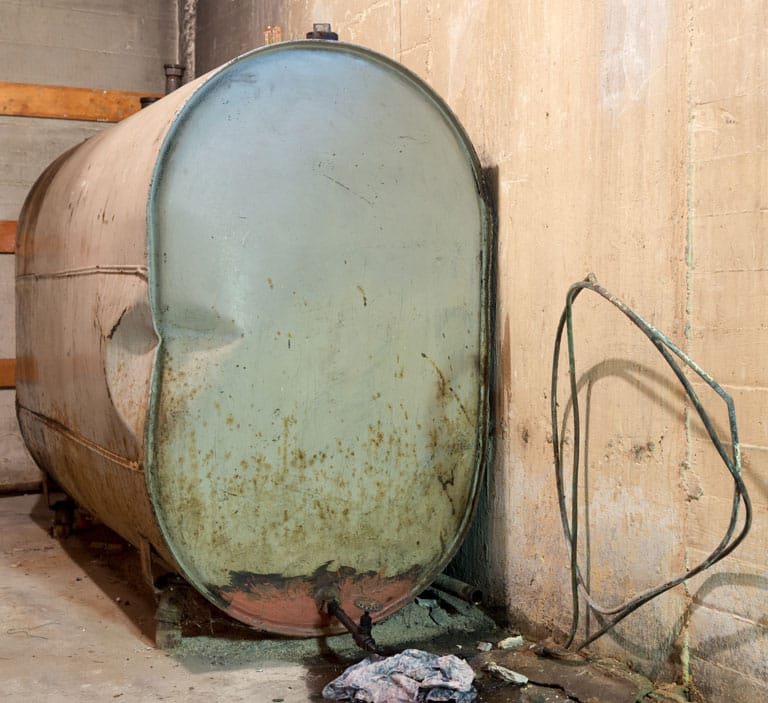For most homeowners, the constant hum of the furnace during a winter’s cold night provides an assurance of safety. In many cases, the oil tank, the largely unnoticed key to that warmth is not noticed until a issue arises. But proactive maintenance, like oil tank replacement, is crucial for your home’s safety and efficiency. We’ll assist you in understanding the costs for replacing the oil tank and assist you in making an informed choice about this important investment for your home.

The significance of maintaining oil tanks Avoidance is the key to success
Many homeowners overlook the significance of oil tank maintenance. A well-functioning oil tank is crucial to the structure of your home. It is important that you as the responsible owner of your home take care to ensure that your heating system and storage tank for the oil are functioning efficiently and safely. It is true that a seemingly small oil leak in the moment can quickly become a major financial and environmental burden further.
Understanding Average Costs: A 275 Gallon Case Study
It is essential to have the right data when preparing a budget for your home maintenance project. Let’s take a closer look at the typical cost of the replacement of a 275-gallon oil tank which is the most common size used for heating systems in homes. In Massachusetts, New Hampshire, Rhode Island and Connecticut the cost for replacing an oil tank 275 gal is $3,600. The price listed assumes a straightforward replacement in a basement, or outdoor location with minimal access issues.
The value of an oil tank replacement is greater than the price tag
The cost of replacing your oil tank might initially seem expensive It’s worth considering it as an investment for your home’s safety and security over the long run. Here’s why:
Safety First: Tanks for oil that are degraded can leak and create a danger of burning. They could also contribute to environmental contamination. This danger is avoided through the replacement of your tank, which gives you and your family peace of mind.
Increased Efficiency: Older tanks can become less efficient over time, and require more frequent oil deliveries in order to maintain warmth. Newer tanks are much more efficient, and could cut your heating costs in time.
You’ll have peace of mind for years to come. An upgraded oil storage tank offers solid service that lasts for several years, removing any fears of leaks or unplanned breakdowns during the harsh winter months.
Factors Affecting Oil Tank Replacement Costs
For a start, the average price of $3600 to replace a tank that holds 275 gallon of fuel is a good way to start. There are a variety of factors that can impact the final cost of the project:
The Tank’s Size: Larger tanks are more expensive to replace than smaller ones.
Location of the Tank Removal and replacement of a tank buried underground is usually more costly than one in a easily accessible crawlspace or basement.
Accessibility issues Accessibility Issues: If the tank is not accessible due to surrounding structures or tight spaces, the costs of labor associated with its removal and installation will rise.
The proper disposal of an old tank could result in costs that are not included in the original price.
Budgeting for Oil Tanks Replacement: Planning for the Future of Your Home
Tanks that are oil-based have a life expectancy of between 15 and 30 years based on various aspects. You can budget for a tank replacement in advance when you know the approximate age. Get a professional to examine the tank to determine a more accurate estimate for replacement.
Insuring your home’s safety and the long-term viability of your home
The replacement of your oil tank isn’t solely about preserving warmth or convenience; it’s also an investment in the environment. Older tanks may leak in the ground, which can lead to contamination of soil and groundwater. Modern oil tanks comply with stricter environmental standards, which guarantees responsible storage of oil while trying to minimize environmental destruction.
Know-how is power: How to take control of your home’s health and well-being
Make informed choices regarding your home’s maintenance needs by understanding the costs of the replacement of an oil tank. You can ensure that your heating system is ecologically-friendly and effective for years to come by putting a priority on proactive replacement. Do not be surprised by a potential oil tank malfunction during the winter’s most chilly days. Set a budget and plan for this home maintenance project to ensure that you are warm and comfortable during the coldest of winter months.




